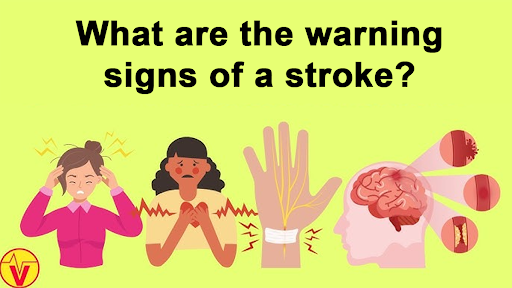A blocked or burst blood vessel in the brain that results in a shortage of oxygen and nutrients is what causes a stroke, which is a medical emergency. According to Dr. Anosh Ahmed, for prompt treatment, it is imperative to recognize the warning signs, which include sudden numbness, confusion, vision problems, severe headaches, and dizziness. Prompt action can reduce complications and brain damage, possibly saving lives. This blog post highlights how critical it is to recognize these warning indicators in order to intervene during a stroke and potentially save a life.
Unexpected Weakness or Numbness
Abrupt loss of sensation or weakness, usually confined to one side of the body, is one of the most prevalent indications of a stroke. Drooping or trouble raising the arm can result from this, which can also affect the leg, arm, or face. Dr. Anosh Ahmed asserts that in order to stop additional brain damage, prompt detection and intervention are essential. Restoring blood flow and reducing the chance of permanent impairment require immediate medical attention.
Confusing or Hard to Speak
Strokes can result in abrupt disorientation, difficulty speaking, or trouble understanding speech. It is possible to witness slurred speech, stroke has affected the brain regions in charge of processing language, necessitating immediate medical attention. Communication problems frequently point to a stroke that has affected the language-controlling left hemisphere of the brain.
absurd sentences, or difficulty understanding basic inquiries. This symptom suggests that the
Vision Issues
Blurred vision, double vision, or loss of vision are examples of sudden visual problems in one or both eyes that may indicate a stroke. Most of the time, these sudden changes in vision are frightening. If sudden changes in vision occur, get medical attention right away, as prompt care can prevent more problems. Because vision problems can have a major impact on everyday activities and quality of life, early intervention is crucial.
Strong Headache
A sudden, severe headache without a known cause is one sign of a hemorrhagic stroke in particular. This headache, which is sometimes called the worst headache of one's life, can cause nausea, vomiting, or a change in consciousness. Although not all excruciating headaches are indicative of a stroke, they still need to be treated seriously. Given the severity and abrupt onset of the headache, prompt medical attention is necessary to address any possible brain hemorrhage.
Lightheadedness and Unsteadiness
Additional symptoms of a stroke include unexpected lightheadedness, trouble walking, imbalance, and a lack of coordination. These signs raise the possibility of accidents and falls. When a stroke affects the brain regions in charge of balance and coordination, dizziness and loss of balance result. It is imperative to seek medical attention right away to prevent further damage. Immediate medical attention is even more important because balance problems can result in major secondary injuries if the person falls.
Throwing up and feeling queasy
Abrupt nausea and vomiting can occur alongside severe headaches or vertigo during a stroke. These signs frequently coexist with other indications of a stroke. The higher intracranial pressure resulting from brain bleeding makes nausea and vomiting more frequently linked to hemorrhagic strokes. Consider the possibility of a stroke if someone has these symptoms in addition to dizziness and confusion, and get emergency medical attention right away.
Abrupt Difficulties Walking
A stroke can result in abrupt walking difficulties, such as an unsteady gait, an inability to walk straight ahead, or abrupt falls. The effect of the stroke on the brain areas in charge of balance and muscular coordination gives rise to this symptom. Dizziness or a lack of coordination in the limbs can accompany difficulty walking, which is frequently one of the early symptoms of a stroke. By acting quickly, medical intervention can help address these problems and possibly even reverse some of the effects.
Inability to Swallow
Another indication of a stroke is dysphagia, or sudden difficulty swallowing. When eating or drinking, this symptom may make you choke or cough. The cause of dysphagia is weakening and poor coordination of the brain-controlled swallowing muscles. Identifying and treating swallowing difficulties promptly can help prevent aspiration pneumonia. To successfully manage this symptom, medical professionals can offer therapies and treatments.
General Weakness and Fatigue
When combined with other symptoms of a stroke, sudden fatigue and general weakness may be signs of a stroke. One may experience unusual body aches, weakness, or lethargy. Because of the disturbed blood flow, the brain's capacity to communicate with the body is compromised, leading to this weakness. While there are many reasons for fatigue, when it appears suddenly, as well as other stroke symptoms, it is important to see a doctor right away in order to rule out or confirm a stroke.
Conclusion
In order to receive timely medical atenttion, it is imperative to recognize stroke warning signs such as sudden numbness, confusion, vision issues, severe headaches, dizziness, nausea, difficulty walking, difficulty swallowing, and weakness. Using the acronym FAST can help identify these symptoms and take prompt action. Dr. Anosh Ahmed concluded that stroke victims recover more fully when they act swiftly and seek medical attention. Since time is the brain, every minute helps lessen the effects of a stroke.




.png)

Comments